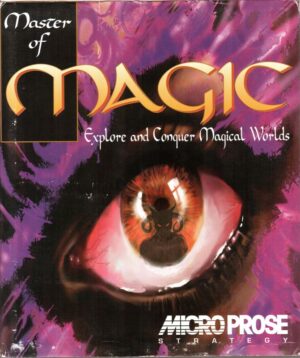Retro Replay Review
Gameplay
The Final Cut places you squarely in the polished shoes of Joseph Shamley, a psychic private investigator tasked with unraveling a chilling mystery within an eerie, Hitchcock-inspired mansion. The core gameplay loop revolves around meticulous exploration, hot-spot investigation, and clue gathering; every shady corner and abandoned movie set could hide a vital fragment of evidence. Navigating the mansion’s labyrinthine halls is largely keyboard-driven, allowing seasoned adventurers to seamlessly transition between walking, inspecting objects, and triggering dialogues—while the mouse becomes an indispensable tool for examining close-up areas and managing your inventory.
(HEY YOU!! We hope you enjoy! We try not to run ads. So basically, this is a very expensive hobby running this site. Please consider joining us for updates, forums, and more. Network w/ us to make some cash or friends while retro gaming, and you can win some free retro games for posting. Okay, carry on 👍)
Puzzles in The Final Cut are both intelligent and varied, striking a satisfying balance between classic combination challenges—such as crafting makeshift keys or deciphering locked doors—and occasional timed tests that ratchet up the tension. Platforming sequences, though limited, provide welcome bursts of adrenaline as you edge along ledges and leap across unfinished sets. These action-oriented moments are sparse enough that they never overshadow the game’s detective core but frequent enough to keep your reflexes sharp.
Conversations in the game are deliberately sparse, heightening the sense of isolation as your tour through deserted backlots and half-built sound stages unfolds. Every spoken word carries weight, often delivered via minimalistic dialogue trees that compel you to think before you speak. Between these moments, you’ll rely heavily on your organizer—a streamlined hub for inventory, diary entries, and a quick-travel map to exterior locations—ensuring that no clue escapes your scrutiny.
Graphics
Visually, The Final Cut capitalizes on its Hitchcockian roots to craft moody, atmospheric environments that feel straight out of a classic thriller. The mansion’s grand foyer, flickering light rigs, and dusty hallways are rendered with carefully chosen textures and dynamic lighting that evoke an unsettling sense of decay and foreboding. Occasional visual glitches surface on older hardware, but they rarely detract from the overall immersion.
Character models and facial animations lean toward the stylized end of the spectrum, lending the game a slightly surreal edge that harmonizes with its supernatural themes. Cutscenes that integrate genuine Hitchcock movie footage during Shamley’s psychic visions are a standout highlight, cleverly blending archival material with the game’s 3D world. This fusion not only pays homage to the master of suspense but also reinforces the uncanny atmosphere permeating the investigation.
Set pieces within the mansion vary wildly—from ornate, art-deco inspired halls to skeletal soundstages littered with abandoned props—showcasing a remarkable range of design ambition. Shadows play across the environment with dramatic effect, prompting you to question whether that flicker in the corner of your eye is a clue or something more sinister. Overall, the graphics serve the story’s tension-driven pace, fostering an environment where every glance could uncover a new secret.
Story
At its narrative core, The Final Cut weaves a complex tale of obsession, disappearance, and the silver screen’s darker side. You’re commissioned by a silent woman to investigate her uncle’s mansion—a once-grandeur manor now steeped in mystery. The uncle, a wealthy aficionado of Alfred Hitchcock’s filmography, has vanished along with his entire movie crew, leaving behind only cryptic notes and half-finished scenes as breadcrumbs toward the truth.
The sparse dialogue and deliberate pacing underscore the isolation of your quest, encouraging you to piece together the story through environmental clues, diary entries, and the scattered remnants of film reels. As Shamley, your psychic visions deliver chilling glimpses of Hitchcock classics, threading meta-commentary on cinematic suspense directly into the plot. These supernatural interludes aren’t mere window dressing—they often unlock new pathways, both in the mansion and in your understanding of the uncle’s unraveling psyche.
What truly distinguishes The Final Cut’s narrative is its blend of classic detective tropes with horror-tinged suspense. With each solved puzzle and uncovered film clip, the stakes rise: the mansion’s walls seem to close in, and shadows play tricks on your mind. By the time you reach the final act, the lines between reality, film, and psychic projection blur into a masterful crescendo that pays fitting tribute to Hitchcock’s legacy.
Overall Experience
The Final Cut delivers a unique fusion of detective gameplay and cinematic homage that will appeal to fans of both point-and-click adventures and psychological thrillers. Its measured pace and emphasis on exploration over action make it a thoughtful experience, where every discovery—whether a cryptic note or a hidden lever—feels earned. Occasional spikes in difficulty during timed puzzles can frustrate, but they also reinforce the high-stakes atmosphere the game so expertly cultivates.
While some players may find the minimalist dialogue and slow-burning narrative style challenging at first, those willing to embrace the game’s methodical tempo will be rewarded with a richly layered mystery. The integration of Hitchcock movie footage during psychic visions stands out as both an innovative storytelling device and a heartfelt nod to the master of suspense. It’s an experience that honors genre conventions while twisting them in unexpected ways.
In the end, The Final Cut shines brightest when it allows you to don the detective’s hat, assemble clues piece by piece, and feel that satisfying click as disparate details snap together. Atmospheric graphics, diverse puzzles, and a haunting storyline coalesce into an adventure that lingers in the mind long after the final credits roll. For players with a taste for cerebral mysteries and classic cinema homage, this game is an arresting journey worth undertaking.
 Retro Replay Retro Replay gaming reviews, news, emulation, geek stuff and more!
Retro Replay Retro Replay gaming reviews, news, emulation, geek stuff and more!









Reviews
There are no reviews yet.